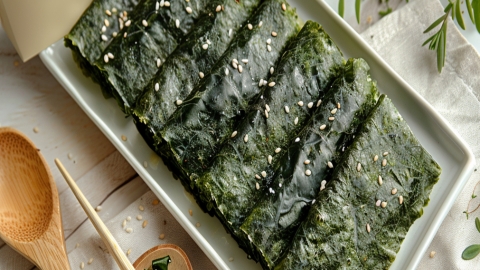Is seaweed an alkaline food?
Generally speaking, seaweed is an alkaline food. The specific analysis is as follows:

The acidity or alkalinity of food depends on the types and amounts of minerals produced after metabolism. Seaweed is rich in alkaline minerals such as potassium, sodium, calcium, and magnesium. After being metabolized by the human body, these minerals generate alkaline substances that help regulate the body's acid-base balance. Additionally, as a natural algae, seaweed is nutritionally rich and does not produce excessive acidic byproducts during metabolism, conforming to the characteristics of alkaline foods. Moderate consumption can actively contribute to maintaining acid-base stability within the body's internal environment.
When consuming seaweed, it is important to purchase it from reputable sources and avoid products that are damp or spoiled. Seaweed contains a high level of salt and should not be consumed in excessive amounts, especially for individuals with hypertension or kidney disease, who should limit their intake. Furthermore, some people may be allergic to seaweed. Those trying it for the first time should start with a small amount. If adverse reactions such as rash or itching occur, consumption should be stopped immediately and medical attention sought promptly.






